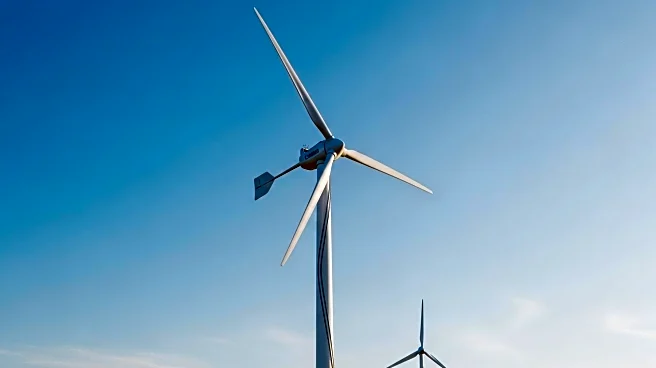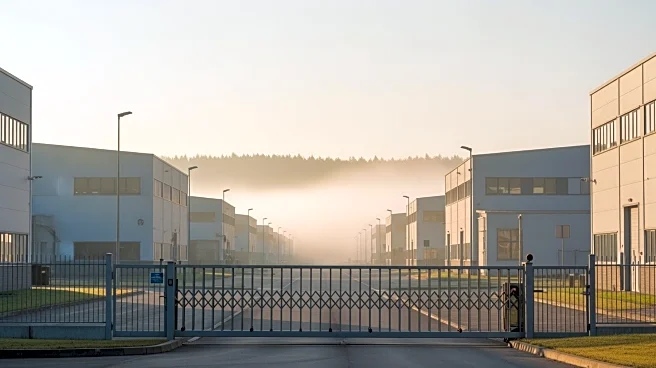What's Happening?
A report by Make UK reveals that British manufacturers are committed to investing in green technologies despite calls to scale back the UK's net zero ambitions. Over 80% of companies plan to prioritize renewable energy in their business plans over the next five years. However, barriers such as high rateable values for energy-efficient technologies and industrial energy costs higher than those in the US, France, or Germany are hindering progress. Make UK is urging the government to remove green investments from business rates calculations to facilitate decarbonization and support the transition to net zero.
Why It's Important?
The commitment of UK manufacturers to green technology investment is crucial for achieving national and global sustainability goals. Removing barriers to investment, such as high business rates, could accelerate the adoption of renewable energy and reduce emissions. This shift is essential for maintaining industrial competitiveness and ensuring energy security. The government's response to these calls could significantly impact the pace of the UK's transition to a sustainable economy and influence policy decisions in other countries facing similar challenges.
What's Next?
The UK government is expected to address the concerns raised by Make UK in upcoming budget announcements. If green investments are excluded from business rates calculations, it could lead to increased investment in renewable energy and other sustainable technologies. The British Industrial Competitiveness Scheme (BICs) set for 2027 may also play a role in shaping future policies. Manufacturers will continue to advocate for lower energy costs and broader R&D tax relief to support their green initiatives.
Beyond the Headlines
The push for green technology investment reflects a broader cultural and ethical shift towards sustainability in the manufacturing sector. As companies prioritize renewable energy and digitalization, they are not only reducing their environmental impact but also enhancing their operational efficiency. This trend could lead to long-term changes in supply chain management and consumer expectations, fostering a more sustainable industrial landscape.











